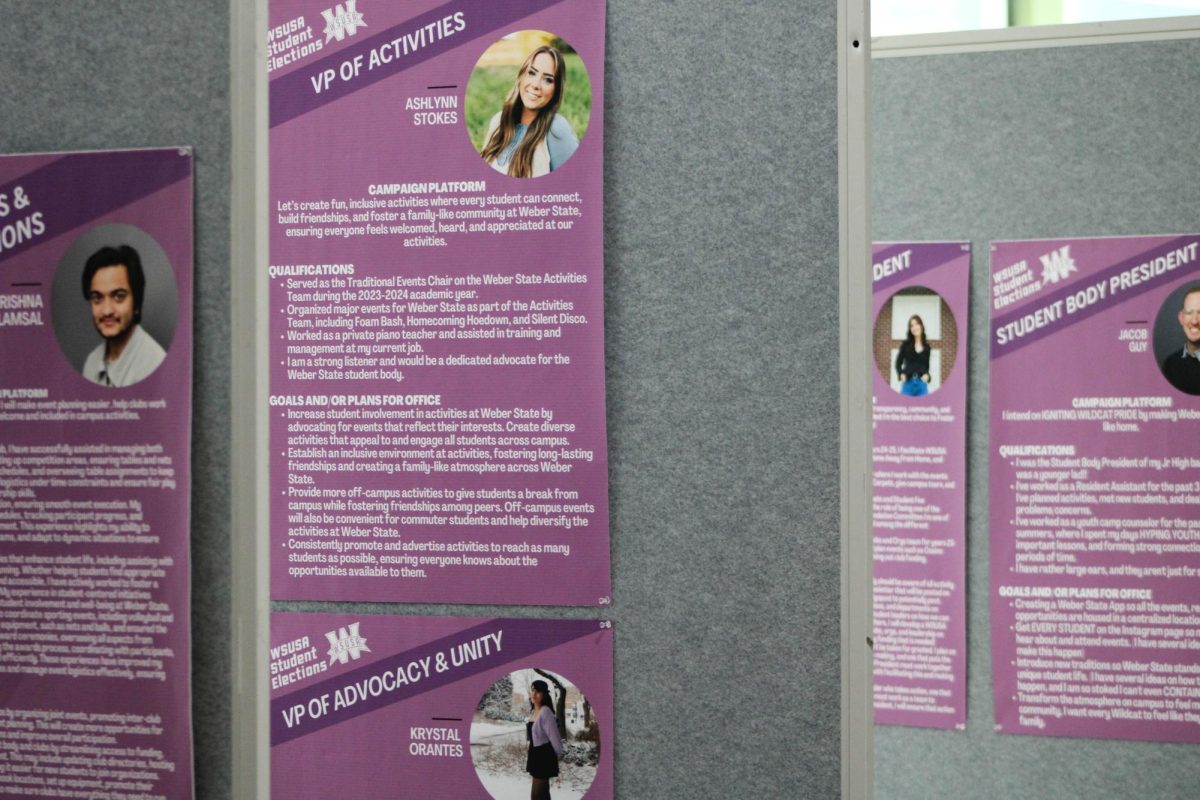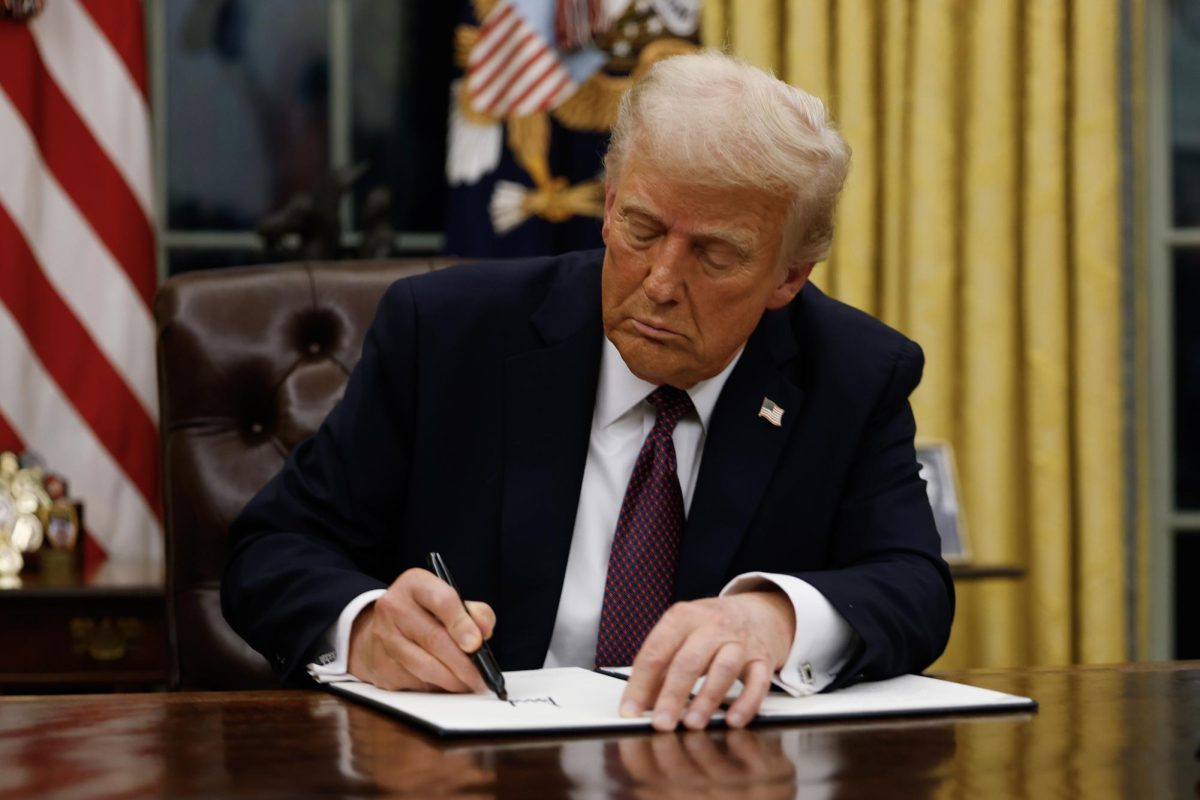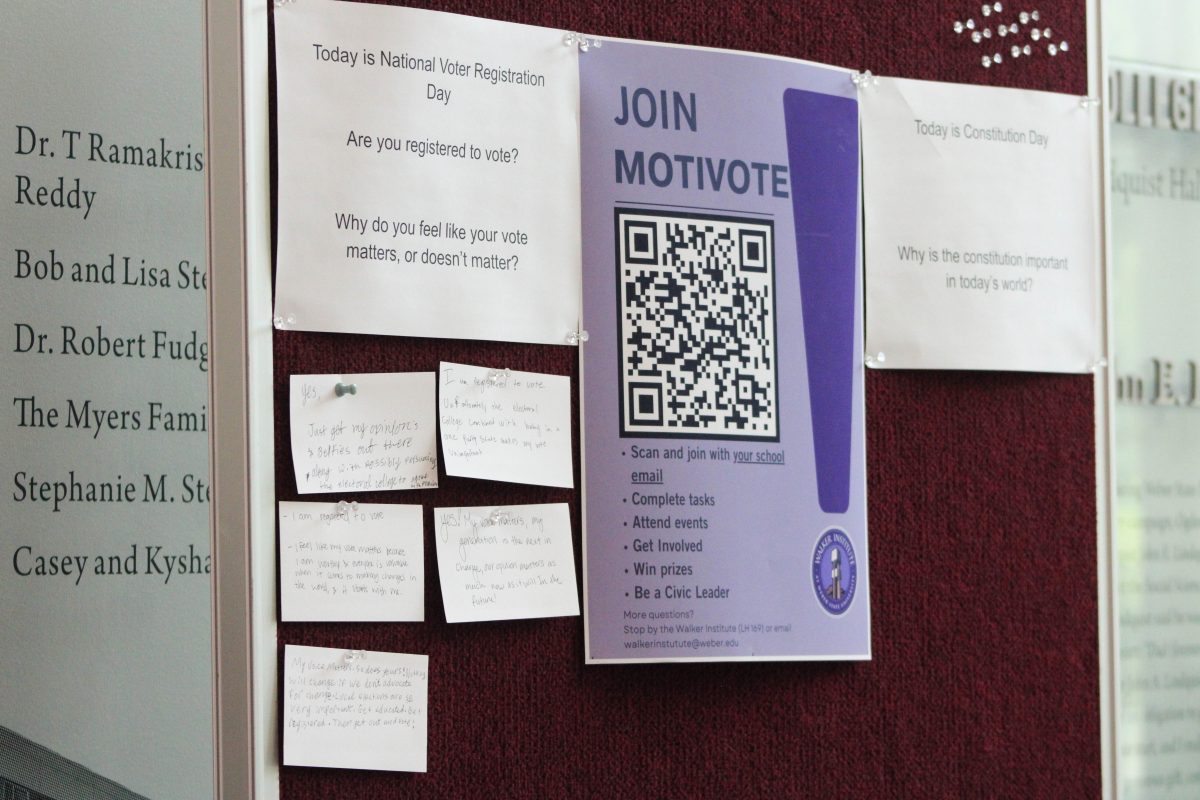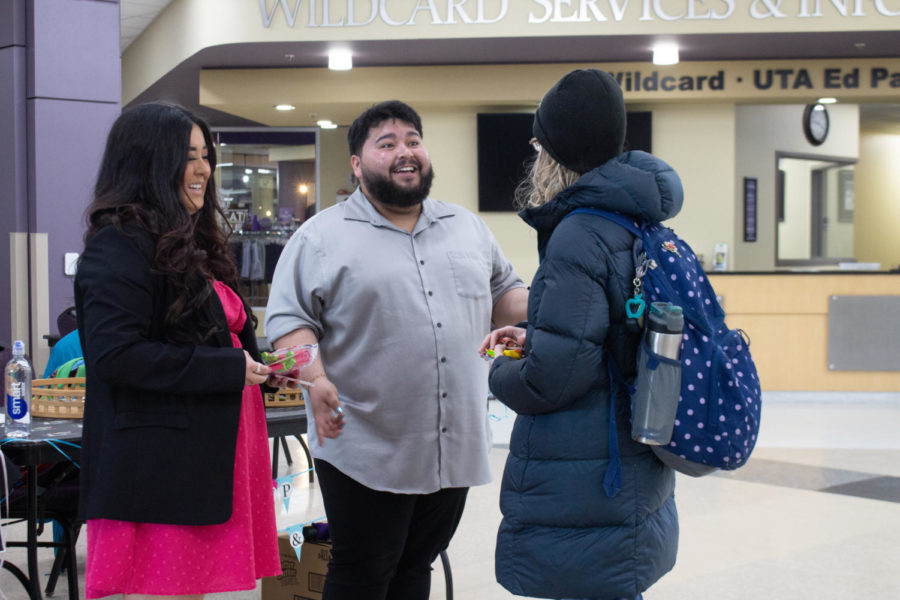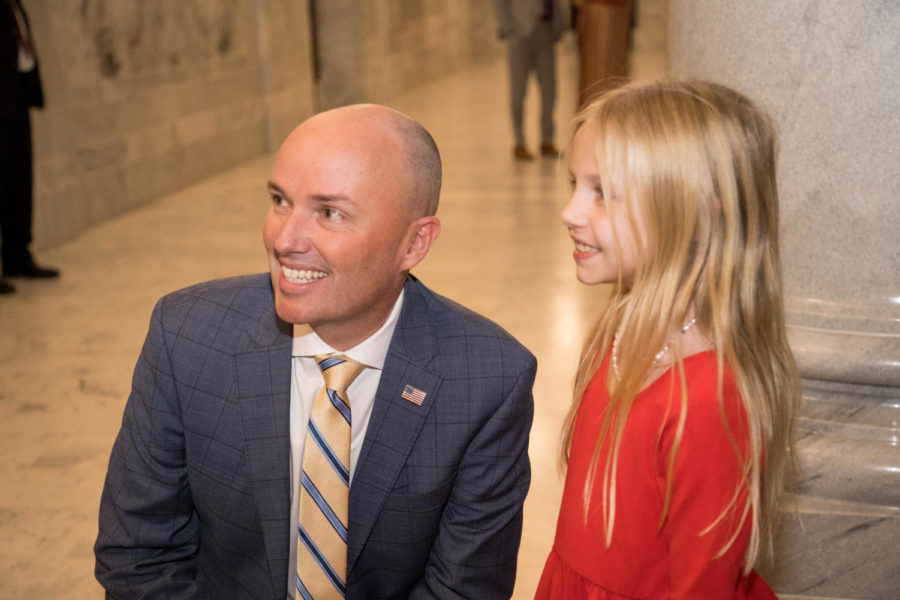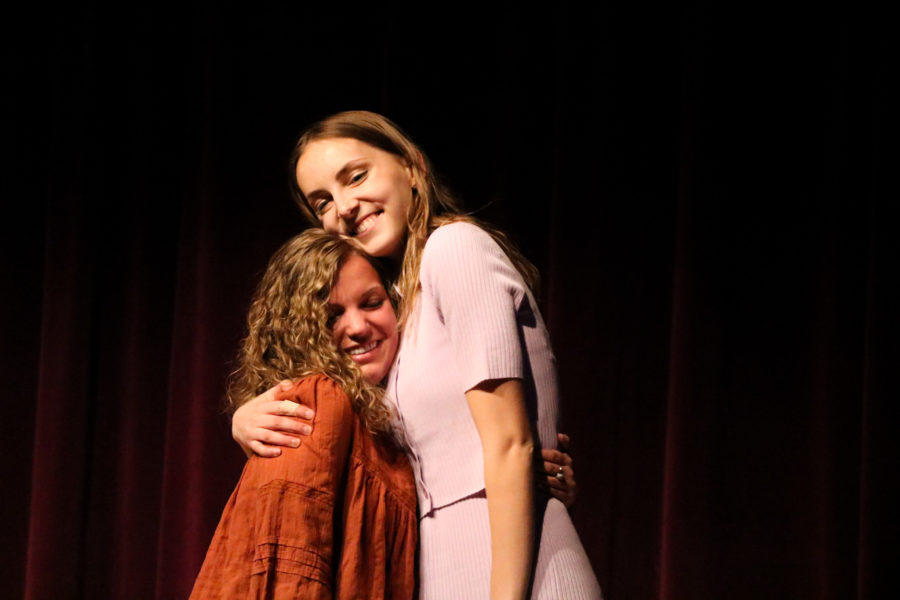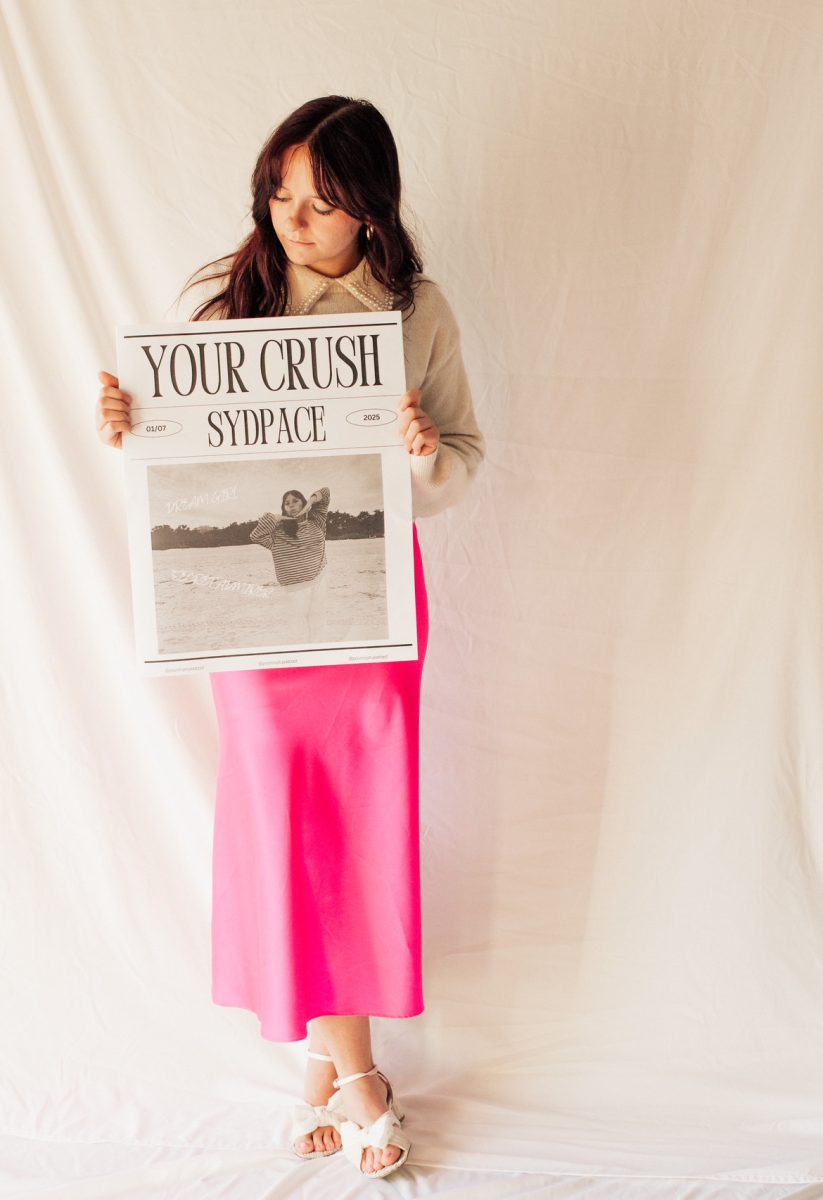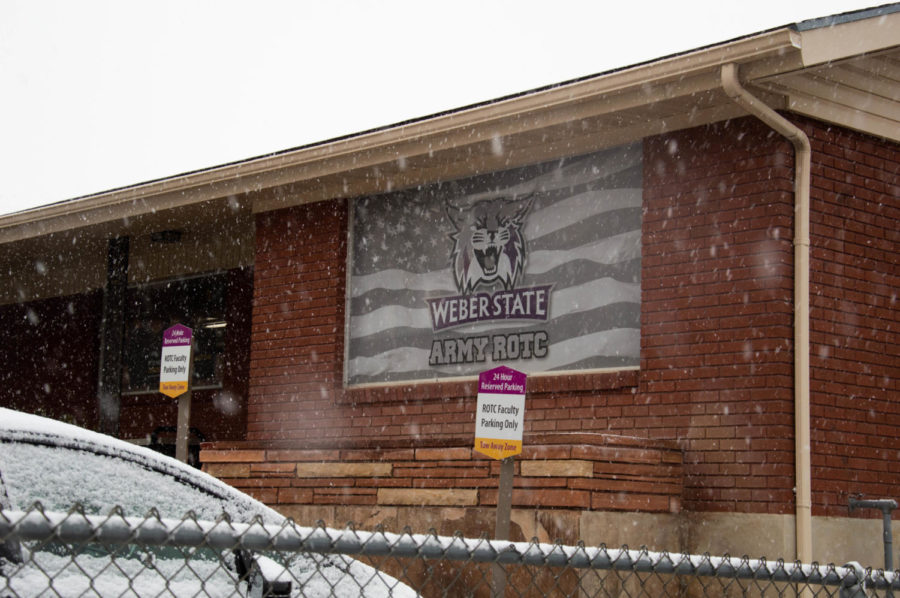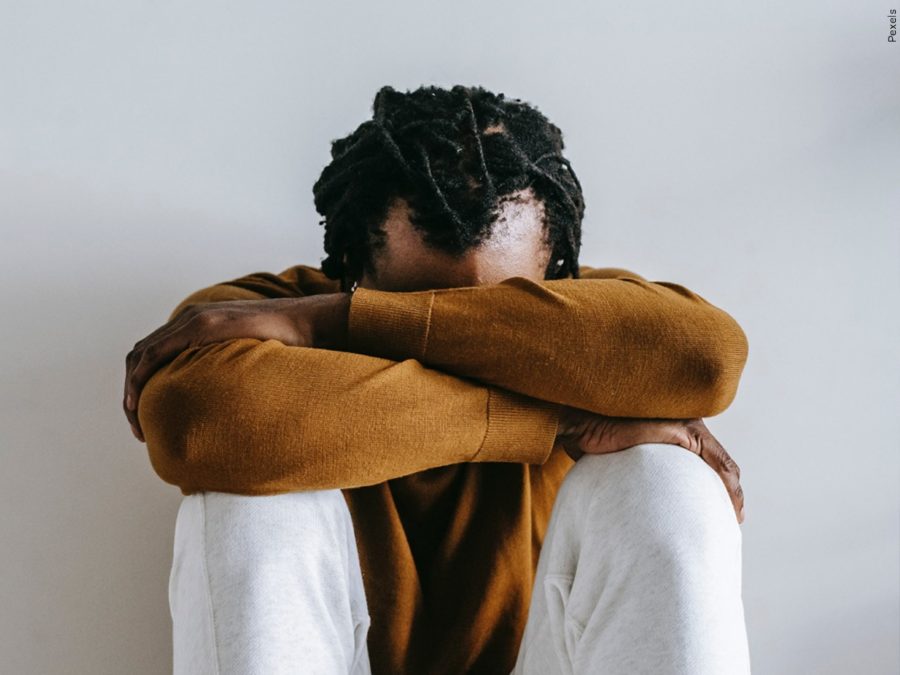When the University of Utah won the bid for the vice presidential debate in October of 2019, they envisioned grand ideas of ways to bring the community together.
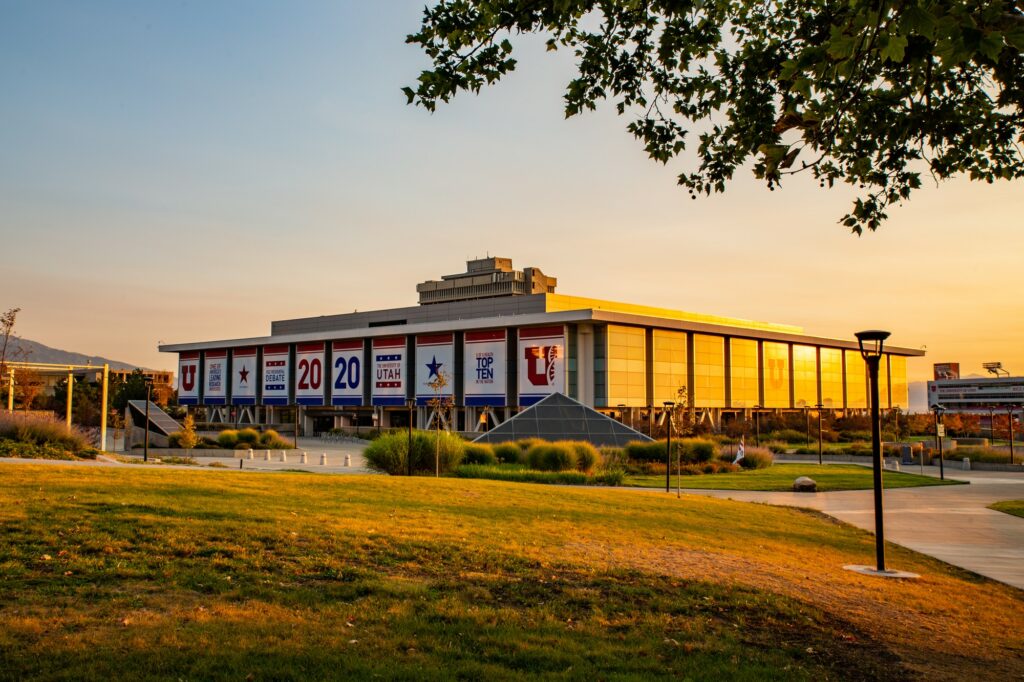
There would be watch parties, food trucks and free speech stations. The university would host discourse on politics and utilize hundreds of student volunteers.
Then the coronavirus pandemic hit.
The entire university had to pivot. A campus that normally had 32,000 students went entirely online. The number of student volunteers went from 900 to 300. Only 60 students got tickets to Kingsbury Hall. Instead of filling the building with thousands, only a couple hundred people would be allowed inside.
Instead of the typical 1,000 to 3,000 members of the media on campus to cover the debate, only 250 gathered in the tent outside Kingsbury Hall.
For those in charge of organizing the event, all plans had to shift.
Chris Nelson, the communications director for the University of Utah, has worked since last year to bring this event to life. Since March, the university has overcome several obstacles to make it happen.
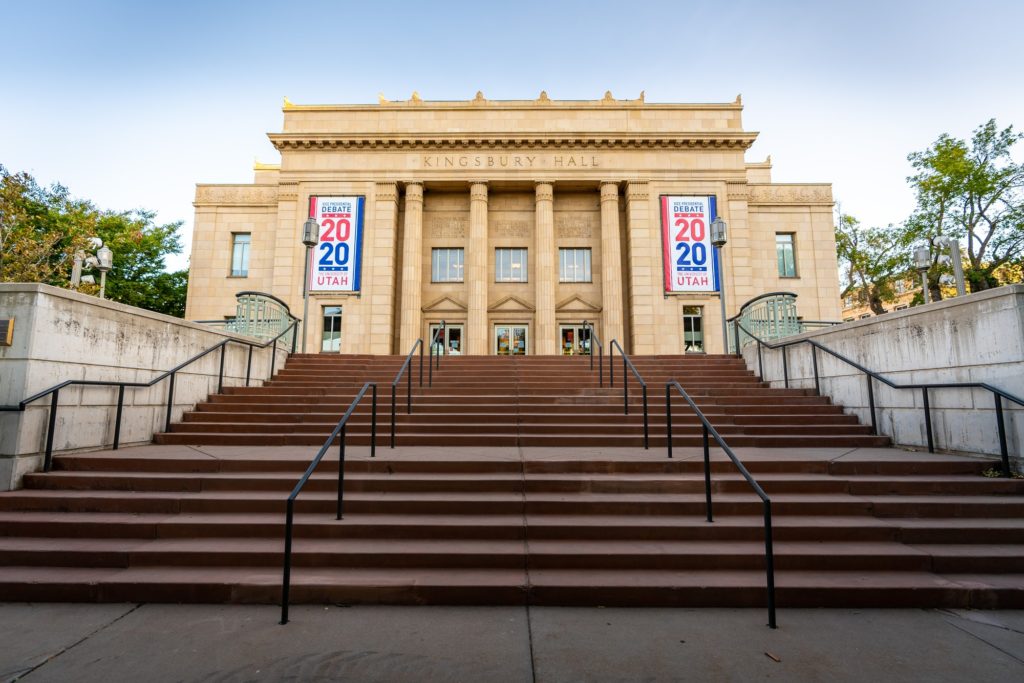
Watch parties were moved to Zoom. The university produced virtual watch kits. They designed a debate bingo card. Classes incorporated presidential election history. Fall break was extended an additional week to ensure the campus would be sparse.
“Universities like Weber State and University of Utah were built to bring people together,” Nelson said. “The vice presidential debates were designed to do the same thing. The idea is to bring people to campus and share ideas and have arguments. COVID really throws it off.”
Operating with limited staff and volunteers, the university got to work on the details: supplies, budgeting, security, IT and more.
The office of student affairs provided staffing for volunteers and student engagement. Vice President of Student Affairs Lori McDonald was in on the action from the start.
Immediately after learning the university had secured the debate, McDonald’s office was bustling.
“We were gearing up for hundreds of volunteers and watch parties,” McDonald said,” McDonald said. “We knew we’d want to celebrate this.”
The university prioritized student involvement. Most of the volunteers were students, and much of the focus revolved around how to engage as many students as possible.
“The president of the university said very early on that any tickets the university gets are going to students,” McDonald said.
When the audience size was severely limited due to COVID-19 precautions, students entered into a raffle to get tickets to the debate. Only 60 got the opportunity to watch in person.
Security, which would be formidable even in normal circumstances, was heightened in the wake of COVID-19. The campus was effectively shut down, with media members sequestered to various areas.
Anyone allowed in Kingsbury Hall had to have a negative COVID-19 test. Everyone was required to wear a mask.
Beyond COVID-19 precautions, the university had to work with Secret Service to protect the candidates.
“To have a sitting vice president here is very complicated when it comes to security,” McDonald said.
Outside of the bubble, students gathered to protest. Utah Students for a Democratic Society assembled amplify the voices of working people and people of color.
The protest was organized around eight points of unity, including defunding the police, taxing the rich and taking climate action.
The protest showed that students were determined to make their voices heard, even during a pandemic.
“You want the impact in non-COVID times,” Nelson said. “You want it to be busy on campus. You want opposing groups. That’s the excitement of doing this.”
Though campus was decidedly quiet, something university officials surely couldn’t have imagined one year ago, the debate was still a significant event.
“This is a once-in-a-career opportunity,” Nelson said. “It’s very exciting. It’s a great opportunity to showcase the University of Utah, the city of Salt Lake and the state of Utah.”
With 80 to 100 million people expected to tune in, the stakes for this debate are high.
“All eyes are on Utah tonight,” Nelson said.
More than 70 million people tuned in to watch President Trump debate Joe Biden on Sept. 30. That spectacle could be what draws so many to watch tonight. If the ratings surpass 70 million, it will be the first vice presidential debate in history to draw more viewers than the presidential debate.
“No matter where you’re going to school or where you stand on the political spectrum, there’s just a point of pride that Utah is hosting a very successful vice presidential debate,” Nelson said.








